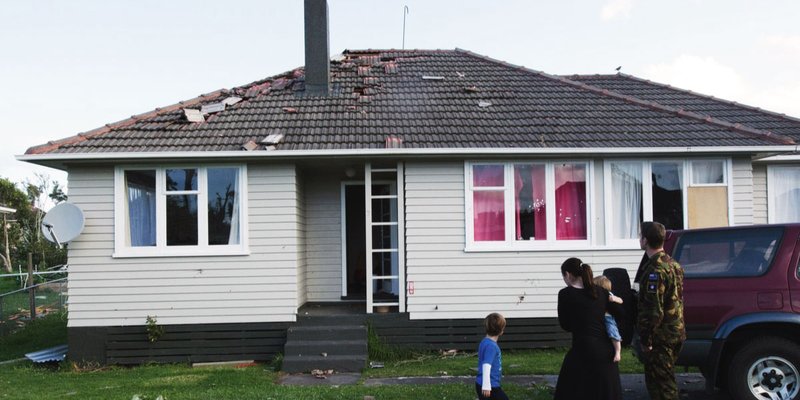
If you are not redirected within 30 seconds, please click here to continue.
Samedi: 10h – 16h HAE

If you are not redirected within 30 seconds, please click here to continue.
If you are not redirected within 30 seconds, please click here to continue.
Actual cash value vs. replacement cost home insurance policies: what’s the difference?

No one likes to think about something bad happening to their home, but in the event that it gets damaged, it’s important to have the proper insurance coverage so that you can get it repaired or replaced.
Home insurance companies offer two types of policies: actual cash value (ACV) and replacement cost — both of which help replace your damaged property and belongings, just in different ways. But what’s the difference between the two? And which is best when it comes to insuring your home?
Replacement cost home insurance policies
Replacement cost policies are based on how much it would cost to replace an item today at current prices. This kind of policy doesn’t consider how much the item has depreciated in value, so you are able to buy a brand new comparable model.
For example, if a flood in your basement damages a sofa you bought for $500 three years ago, and you have a replacement cost home insurance policy, your provider would give you enough money to buy a new, comparable couch that today may cost around $600.
Replacement cost policies tend to be more expensive than actual cash value policies. However, they almost always provide more compensation if something happens to your home and/or belongings.
Actual cash value home insurance policies
Actual cash value home insurance policies are calculated by taking how much you originally paid for an item and subtracting depreciation. The result is that you get less compensation than you would with a replacement cost policy. To replace your belongings, you may have to buy lower quality or second-hand items, or not be able to replace some items at all.
In the example of replacing the sofa in the flooded basement, your insurance company would compensate you based on what the sofa is currently worth. If the sofa was initially $500 and has reduced in value by $50 each year, after three years, it would be worth only $350. So, if a new couch costs $600, you would be left to pay the difference.
Although premiums for actual cash value policies tend to be cheaper than those for replacement cost insurance, you may have to pay a lot of money out of pocket if your home or belongings are damaged.
How to decide between a replacement cost and actual cash value home insurance policy
Stefan Tirschler, product and underwriting manager at SquareOne Insurance, strongly advises homeowners to get a replacement cost policy for their home insurance. Although you may save money on premiums with an actual cash value policy, you will likely have to pay a lot of extra money to replace your belongings if something happens to your home.
Not being able to replace a flooded basement is one thing, but if there were a house fire, an actual cash value policy would not cover the full replacement cost of rebuilding your home.
“I would actually have a lot of problem recommending an actual cash value policy because at the policy level, you are putting yourself in the position of how to deal with depreciated value for not just your stuff, but even your house,” says Tirschler. “You don’t get a replacement house when it burns down, so that could be incredibly dangerous.”
Tirschler adds, however, that there may be some instances in which ACV is appropriate. “For example, homes in remote or high-risk regions may be so expensive to insure for replacement cost that the owner may instead decide that an ACV policy is all they need. However, it is increasingly rare for an insurance provider or customer to decide that an ACV policy is the right fit. Replacement cost policies are simply better for our customers, and they're available for the overwhelming majority of homeowners, condo owners and tenants in Canada."
When it comes to insuring your home, you have to decide if you’d rather spend a bit more money on premiums to make sure you have sufficient replacement coverage. Because if your home is damaged beyond repair, having the right insurance policy will save you a lot of money. When you’re comparing home insurance rates, ask your agent or broker which policy they recommend for your situation.
Interested in creating content with RATESDOTCA? Reach us at email@rates.ca.
Don't waste time calling around for home insurance
Use RATESDOTCA to shop around and compare multiple quotes at the same time.
Finding the best home insurance coverage has never been so easy!
Get money-saving tips in your inbox.
Stay on top of personal finance tips from our money experts!










